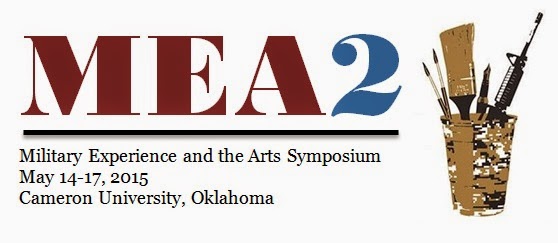 Last month I had the opportunity to offer a couple of writing workshops at the second annual Military Experience and the Arts conference in Lawton, Oklahoma. I’d like to give you a sense of what those workshops were like because I left there with such a full heart. The group included men and women, combat veterans (from Korea, Vietnam, the First Gulf War, Iraq and Afghanistan), military spouses and a few people who grew up in military families. We met in a classroom at Cameron University, gathering around the tables that served as desks with blank white-boards covering the walls around us. For the most part, the attendees didn’t know each other; most of them would say they weren’t writers. They showed up to see what it would be like to write about the things their hearts still carried from many years in the military: friends lost, months – or years – in combat, the huge chasm between them and the civilian world, the sense of pride and service they wore along with those uniforms. We wrote from prompts (noise, uniform, leaving, everything changed when…), writing for just a few minutes as a quick warm-up. When we stopped writing, anyone who wanted to could read their piece of writing to the group, and then (the part they all loved the best) the group would echo back to the writer the words and phrases that stood out to us in their piece. Random words and phrases floated back to the writer: “forever gone” . . . “I wanted home” . . . “never been more scared” . . . “mortar’s scream, then black silence.” We wrote longer pieces, too – up to twenty minutes on the more complex prompts. And then the echo back part would happen again. These veterans and spouses and family members wrote poetry or prose, fiction or non-fiction, or maybe a list of words that came to mind. I can still see them, hunched over those ugly-but-functional classroom tables, furrowed brows, pens scratching on paper, sighs floating through the air as they wrote. Sometimes one of them would stare off into space for a brief moment, trying to capture the flash of memory pressing up from inside: the remembrance of sound or silence; the smell of mud and blood; the goodbyes they never got to speak; the days leading to leaving, the nights waiting to go home. These were their rules of engagement: just keep writing, don’t think too much, don’t edit, don’t need it to make sense, write anything that comes to mind or heart. Reading their pieces, their voices became choked with emotion. The room turned pristinely quiet and attentive, a cocoon holding this tribe of warriors. They read about the buddy they’ll never forget, the pressure of saying goodbye to loved ones for yet another long year of combat, the taut laces of fear that stitched together moments of fighting. One after another overcame their hesitancy to offer what they wrote; one after another had to pause. We all waited patiently for the reader to regain enough composure to read the next sentences. Sometimes there was more than one pause to stave off the tears that were brimming. The room kept getting more and more intimate, more and more attuned to the words being read, more and more holy. Afterward, some of the group told me they had never written like this before – or had never written about that moment, about that friend or that heartbreak. As everyone lingered and talked around those scattered tables, I knew bonds had been formed, in between the words and the silent receiving of them. Out there on the wide plains of Oklahoma, men and women were finding their way home, word by beautiful word. danny johnson says:
|
Elizabeth Heaney - AuthorClinical Psychologist, teacher, private counselor. She speaks and writes about her work with service members. Archives
November 2020
Categories
All
|
|
All content (C) Elizabeth Heaney except where noted. All rights reserved, 2016.
Web design by GraphicMedia Design
|

 RSS Feed
RSS Feed